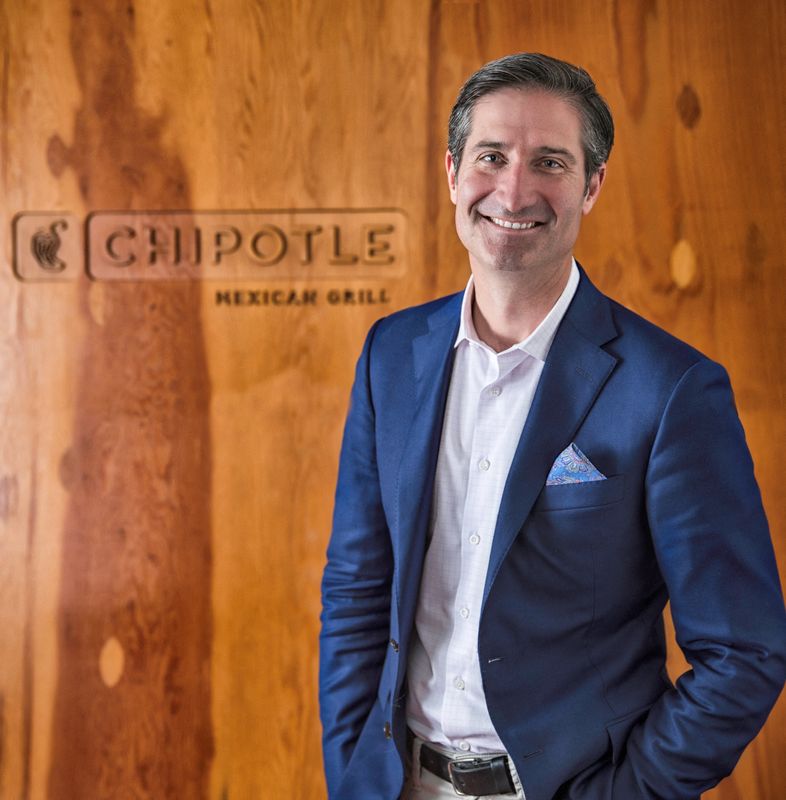Farm aid: Chipotle CEO Brian Niccol on America’s farming crisis
By Chris Taylor
NEW YORK (Reuters) – When you order at Chipotle Mexican Grill (NYSE:CMG), you are probably not thinking about the complex supply chain that got your food into your hands.
That is Brian Niccol’s job.
As Chipotle’s CEO and chair, the buck stops with Niccol when it comes to all those logistics. But Niccol does want you to consider the land and workers needed to make it all happen because without them, you’re not getting that meal.
Niccol spoke with Reuters about the real and disturbing implications of disappearing farmers and farmland.
Q: Why do you think farming is in such crisis?
A: A lot of farms are not transferring generationally and a lot of farmland is being lost to development. We are running a new campaign informing people about this, because we want to make sure land ends up in the hands of farmers.
In the last decade alone, the U.S. has lost more than 20 million acres of farmland, and 400 million acres are expected to need new farmers in coming years.
If young farmers can’t find affordable land, that’s just not going to happen. We want to make sure government is aware of this, and people are aware because a lot of folks don’t even realize this is happening.
Q: The number of farmers has been declining for decades. What does this mean for you?
A: We love the idea of supporting small farmers. We want to stay committed to food with integrity and that means responsibly raised animals and organic produce.
We need small farmers, and we are committed to buying from them. We also invest in them and give them tools to provide food at scale. This is constantly on our minds, and we hold ourselves accountable.
Q: How do you support them specifically?
A: One of the biggest things is creating long-term contracts. If you give them a three- or four-year contract, that helps dramatically because they know they have a buyer on the other end, and can invest accordingly.
The other thing we do is provide grants for younger farmers who are getting started and need money to plant their first crop or buy their first animals.
Q: Everyone is talking about the supply-chain nightmare. Is it giving you constant headaches?
A: We have a lot of great partners and have been able to smart forward-buy where we need to, to stay in stock on key items. But it’s not getting any easier, that’s for sure. Between freight and labor challenges, this is a daily discussion.
Q: Are there particular menu items that are harder to secure than others?
A: So many items are grown and raised right here in the U.S., and we have longstanding relationships with those folks. We knew what to plan for, and we didn’t run into any real problems.
Lately the bigger challenges have been associated with building restaurants: There you run into challenges like getting access to HVAC equipment, and buying enough steel to make grills.
Q: How has the labor squeeze impacted you?
A: There is a real battle going on for labor. I’ve never seen it so tight. That’s why it’s really important to talk about purpose.
Another part of it is that you have to have wages right and the ability to grow those wages. We also offer benefits I really love, like debt-free degrees and tuition reimbursement. We have always been a leader on the wage and benefit front.
Q: What leadership lessons have you taken away from the COVID era?
A: From a management standpoint, you can’t communicate enough in times of uncertainty. You can’t be afraid to say, “This is working” or “This isn’t working.”
You have to keep the communication flowing. Be transparent in what you know and what you don’t know, and then ask for feedback because it can’t be just one-way communication.
Q: What is your favorite item on the menu?
A: Barbacoa (beef). I love it. I get it every which way possible.












 Bitcoin
Bitcoin  Ethereum
Ethereum  Tether
Tether  XRP
XRP  USDC
USDC  TRON
TRON  Lido Staked Ether
Lido Staked Ether  Dogecoin
Dogecoin  Figure Heloc
Figure Heloc